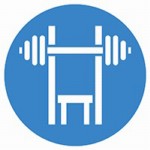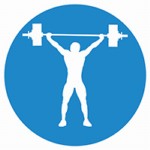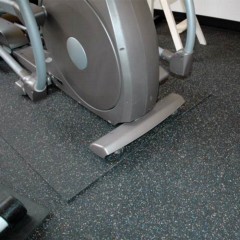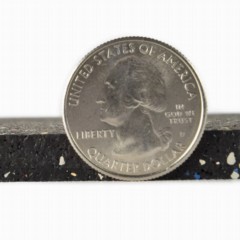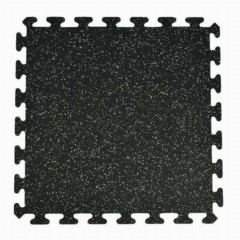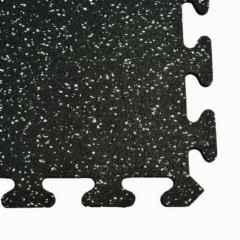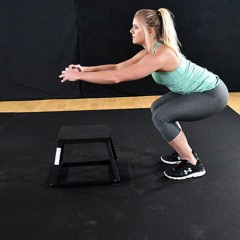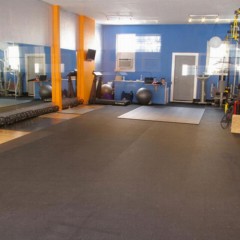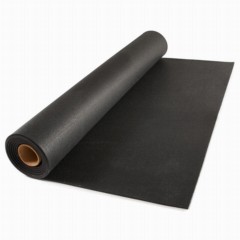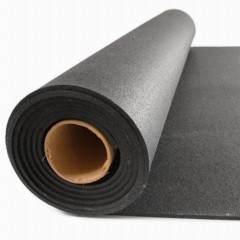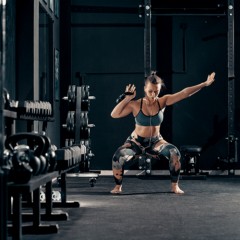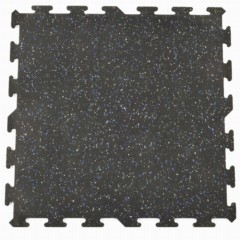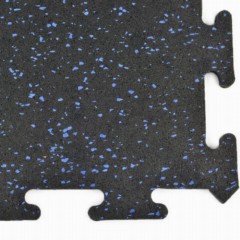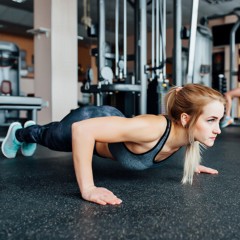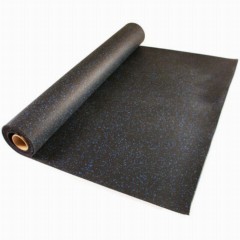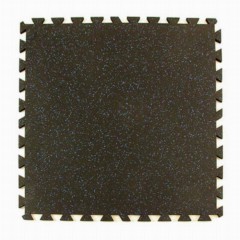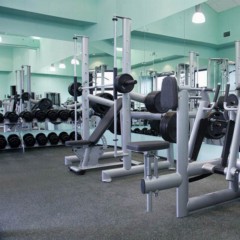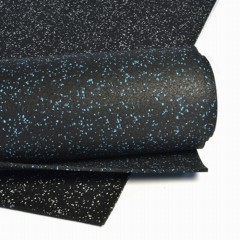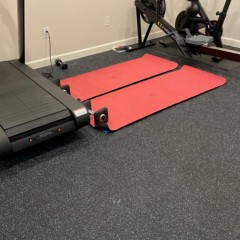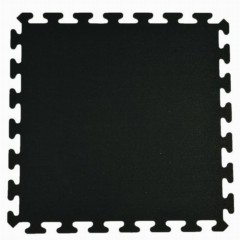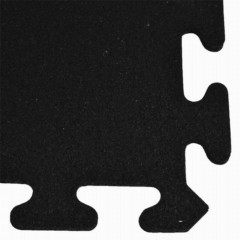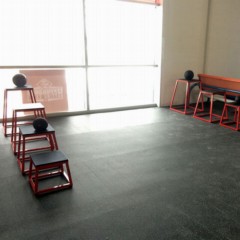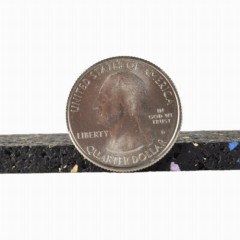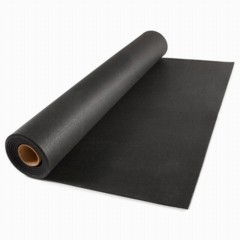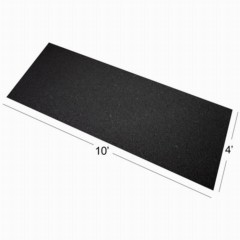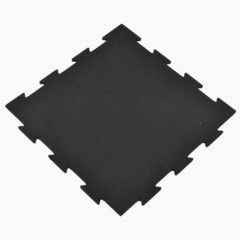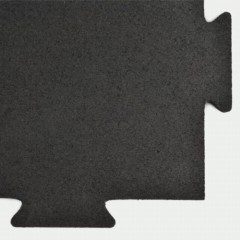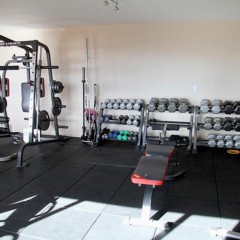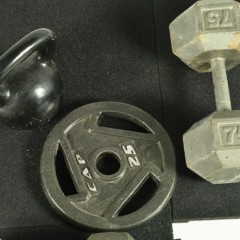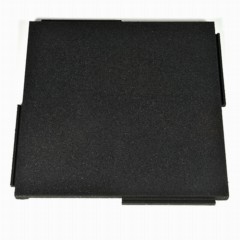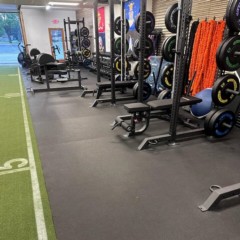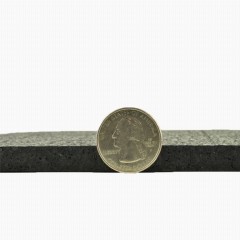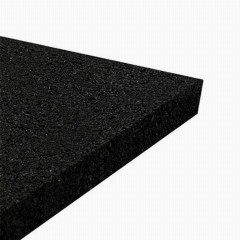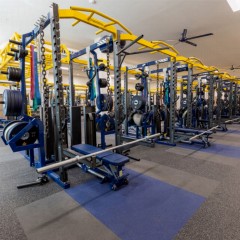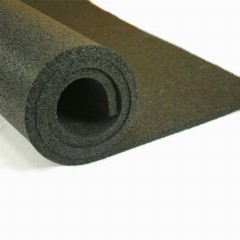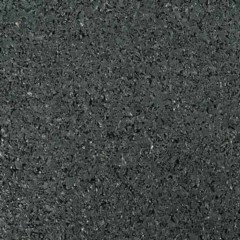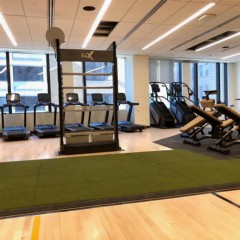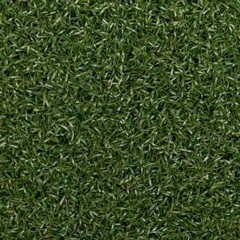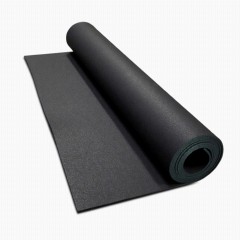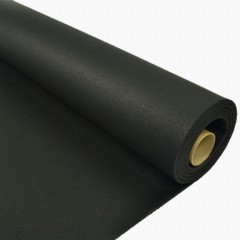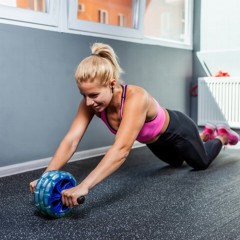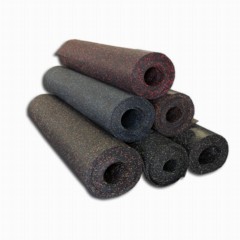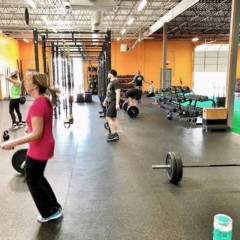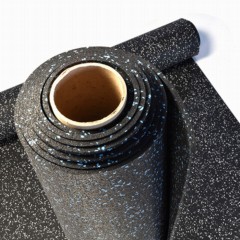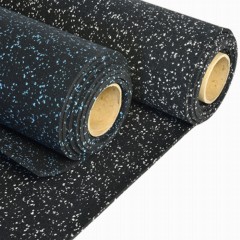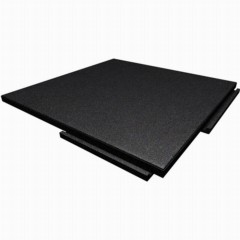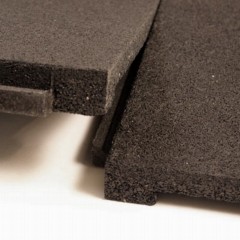Options for Rubber Gym Flooring
Choosing the right rubber gym flooring is crucial for creating an optimal workout environment. At Greatmats, we offer rubber flooring for gyms in various types and styles to suit different activities, from weight training to cardio exercises. This flexibility ensures that you can find a gym rubber flooring solution that supports the specific demands of your fitness regimen and enhances safety and performance.
Whether your focus is on heavy free weights, exercise machines, or high-intensity interval training – or all three – Greatmats has a rubber gym flooring option designed to meet your needs, ensuring durability and comfort underfoot. If that’s not enough, our rubber gym floor options are inexpensive and easy to clean. (We admittedly may be biased, but we’re not sure why you’d select anything but gym flooring featuring rubber.)
Types of Gym Rubber Flooring
At Greatmats, we offer three different formats of rubber gym flooring that work in a home gym, basement gym, or commercial sports facility.
- Mats: Rubber gym mats usually are available in pre-cut sizes like 2x3 feet or 4x6 feet with straight edges. They can be quite thick.
- Rolls: Rubber gym rolls cover a lot of space for a low price per square foot. They’re usually thinner than other formats.
- Tiles: Rubber gym tiles often have interlocking edges, making it easy to connect them for a floor layout without needing glue. There's a tile to meet every need, with options typically including 2x2 feet and 3x3 feet and thicknesses spanning from 8 mm to 3/4 of an inch. Significantly thicker tiles are available, too.
Features and Benefits of Rubber Flooring for Gyms
When you select rubber gym flooring, you receive a number of benefits from this material compared to other flooring material options.
Rubber vs. Foam Mats
Rubber flooring offers exceptional durability that is ideal for supporting exercise equipment in a gym. This material choice reflects an eco-friendly approach while ensuring longevity under heavy use. On the other hand, foam flooring provides a softer, more cushioned surface for floor exercises, boxing gyms, and martial arts studios.
Virgin vs. Recycled Rubber Mats
Due to its characteristics and cost, virgin rubber is not typically used for whole gym flooring tiles. Instead, the more common choice is recycled rubber material, which offers both environmental benefits and cost-effectiveness. Recycled rubber provides a durable, resilient surface that is well-suited to the demands of a gym environment. Some tiles use a combination of virgin and recycled rubber.
Why You Should Select Rubber Gym Flooring
The features and benefits of rubber gym floor mats include crucial aspects such as floor protection, user cushioning, and sound reduction.
Using Rubber Over Concrete
Installing rubber gym flooring rolls and mats over concrete is a prevalent practice and is essential for ensuring a stable and durable workout surface. It's crucial that the concrete be free from debris and oils and be smooth and level. Should there be any moisture issues with the concrete, these must be resolved prior to laying down the rubber flooring.
Rubber Thicknesses & Activities
Activities |
1/4 In |
8mm |
3/8 In |
1/2 In |
3/4 In |
1 In |
2+ In |
|
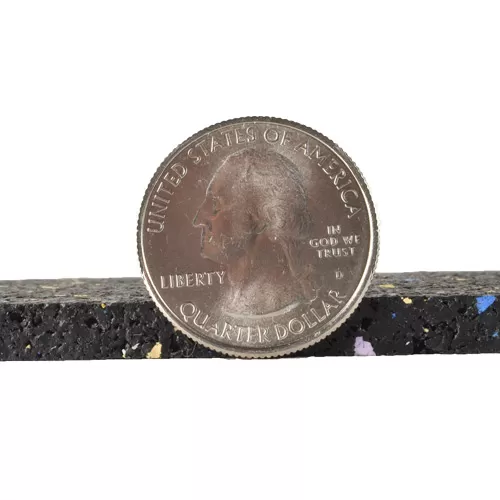 |
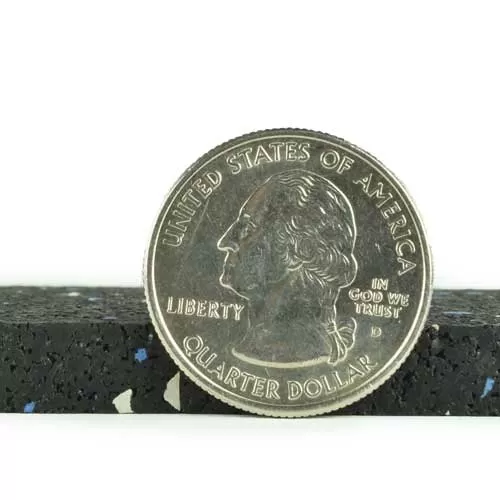 |
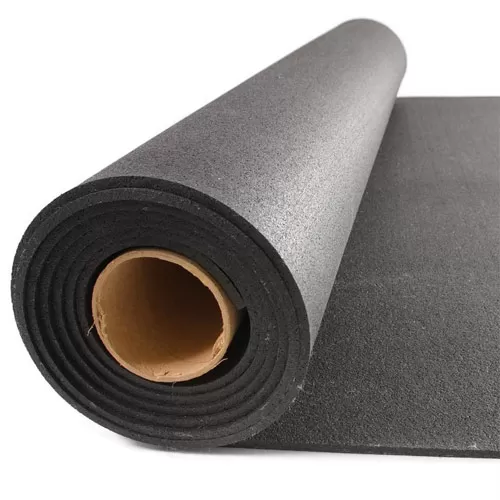 |
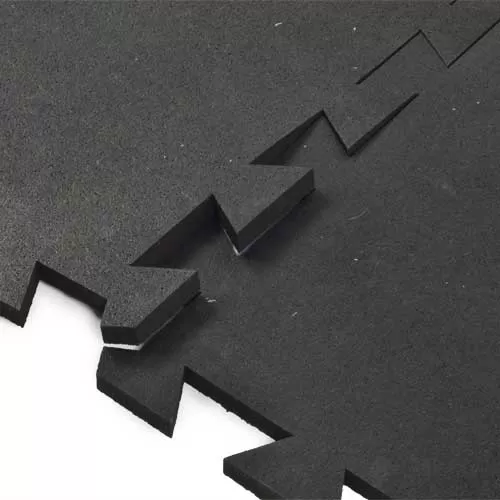 |
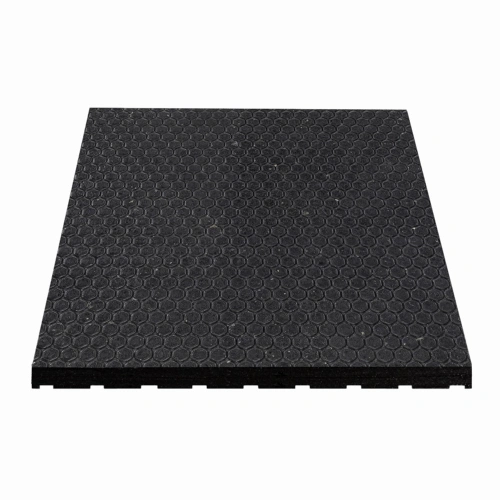 |
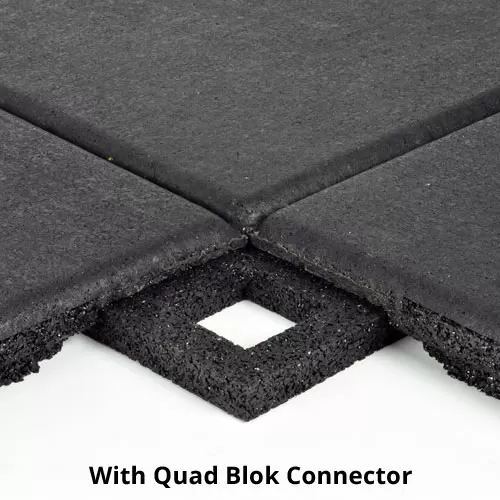 |
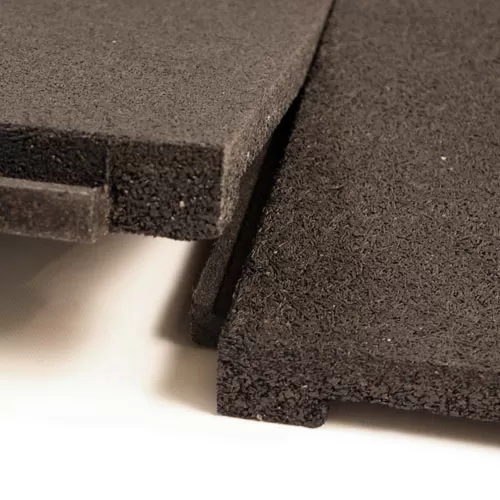 |
Bodyweight Exercises |
✓ |
✓ |
✓ |
✓ |
✓ |
✓ |
✓ |
Exercise Machines |
✓ |
✓ |
✓ |
✓ |
✓ |
✓ |
✓ |
Free Weights Up to 50 lbs |
✓ |
✓ |
✓ |
✓ |
✓ |
✓ |
✓ |
Free Weights Up to 120 lbs |
|
✓ |
✓ |
✓ |
✓ |
✓ |
✓ |
Free Weights Over 120 lbs |
|
|
|
✓ |
✓ |
✓ |
✓ |
Intentional Weight Dropping |
|
|
|
|
✓ |
✓ |
✓ |
Vibration/Noise Reduction |
|
|
|
|
|
|
✓ |
Note: This is a general guide. Certain products are designed in ways that are exceptions to these recommendations.
Rubber Gym Flooring Q&A
How thick should rubber flooring be?
Multiple
thicknesses in rubber floors are available, so
select a thickness based on the planned use case. If working with barbells in a professional athletic facility or in a garage gym, a 3/4-inch thickness is necessary to protect the subfloor. Thinner materials are fine for general workouts or for small weights.
What kind of flooring is used in commercial gyms?
Commercial gymnasiums often use rubber because of its versatility. It’s easy to clean, can support many different kinds of workouts, protects the subfloor from damage, and cuts down on noise generation.
Rubber flooring rolls vs. rubber floor tiles: Which is best?
When
comparing rolls and tiles of rubber gym flooring, the better option depends on your needs. Rolls offer a great value per square foot and usually require some sort of adhesive or tape to keep them in place. Tiles may have interlocking edges to allow for a dry lay and are usually thicker for added protection.
What are the best commercial gym flooring tiles for noise and vibration reduction?
The
best commercial rubber gym tiles for noise and vibration reduction are those that are 3/4 of an inch in thickness and that have a waffle bottom design. The ShokLox design is a popular choice for this use case.
What should I know about Greatmats rubber flooring sheets or rolls?
Gym floor mat sheets and rolls from Greatmats are extremely durable and easy to clean. You can select from a variety of thicknesses, width measurements, and lengths. Black is the most common color for Greatmats’ rubber gym mats, but designs with embedded color flecks are available, too.
 $253 /sqft You Save 19%Ships Out in 7-10 Working Days SustainableShop$1312 /Tile You Save 20%$3.38/sqftShips Out in 1-3 Working Days SustainableShop$163 /sqft You Save 20%Shop$9245 /Roll You Save 37%$2.31/sqftShips Out in 1-3 Working Days SustainableShop$1474 /Tile You Save 20%$3.80/sqftShips Out in 7-10 Working Days SustainableShop$3416 /Tile You Save 20%$8.54/sqftShop$2841 /Tile You Save 18%$7.10/sqftShop$235 /sqft You Save 20%Ships Out in 3-5 Working Days SustainableShop$52984 /Roll You Save 19%$5.30/sqftShop$318 /sqft You Save 20%Shop$5970 /Tile You Save 20%$14.93/sqftShop$338 /sqft You Save 19%Ships Out in 7-10 Working Days SustainableShop$293 /sqft You Save 19%Ships Out in 7-10 Working Days SustainableShop$299 /sqft You Save 20%Shop$10189 /Roll You Save 37%$2.55/sqftShips Out in 1-3 Working Days SustainableShop$3961 /Tile You Save 17%$9.90/sqftShop
$253 /sqft You Save 19%Ships Out in 7-10 Working Days SustainableShop$1312 /Tile You Save 20%$3.38/sqftShips Out in 1-3 Working Days SustainableShop$163 /sqft You Save 20%Shop$9245 /Roll You Save 37%$2.31/sqftShips Out in 1-3 Working Days SustainableShop$1474 /Tile You Save 20%$3.80/sqftShips Out in 7-10 Working Days SustainableShop$3416 /Tile You Save 20%$8.54/sqftShop$2841 /Tile You Save 18%$7.10/sqftShop$235 /sqft You Save 20%Ships Out in 3-5 Working Days SustainableShop$52984 /Roll You Save 19%$5.30/sqftShop$318 /sqft You Save 20%Shop$5970 /Tile You Save 20%$14.93/sqftShop$338 /sqft You Save 19%Ships Out in 7-10 Working Days SustainableShop$293 /sqft You Save 19%Ships Out in 7-10 Working Days SustainableShop$299 /sqft You Save 20%Shop$10189 /Roll You Save 37%$2.55/sqftShips Out in 1-3 Working Days SustainableShop$3961 /Tile You Save 17%$9.90/sqftShop
